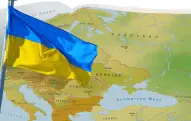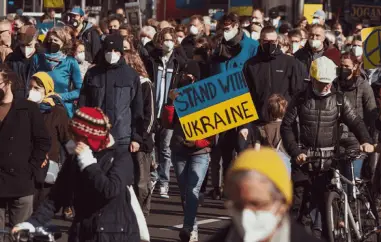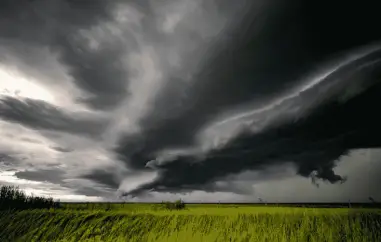British Military Chief Warns of Imminent 'Third Nuclear Age' for NATO
The global landscape regarding nuclear weapons is undergoing a significant transformation, according to the Chief of the British Defence Staff. In a recent address at the Royal United Services Institute in London, Admiral Sir Tony Radakin indicated that NATO countries are on the brink of entering what he termed a 'third nuclear age'.
This warning comes in the wake of escalating tensions following Russia's invasion of Ukraine in February 2022, which has seen the Kremlin assert substantial territorial gains in Eastern Ukraine. The ongoing conflict has been marked by overt nuclear threats from Moscow, with President Vladimir Putin placing his nuclear deterrent forces on high alert at the onset of the war. In subsequent months, Russian Foreign Minister Sergei Lavrov noted that the risks associated with a nuclear conflict have significantly increased.
Radakin highlighted that the Kremlin has engaged in provocative behavior, including large-scale nuclear exercises and simulated strikes against NATO nations, aimed at deterring the alliance from taking necessary actions to maintain stability. In late October, Putin conducted extensive nuclear drills intended to simulate a retaliatory strike against perceived threats.
In his remarks, Radakin traced the evolution of nuclear strategy, characterizing the first nuclear age as the period defined by the Cold War, during which both the United States and the Soviet Union amassed large arsenals of nuclear weapons, driven by concerns over uncontrolled escalation and the necessity of deterrence. He described the second nuclear age as one focused on disarmament efforts and non-proliferation initiatives. Despite reductions in global nuclear stockpiles since the early 1990s, Radakin noted that the pace of disarmament has slowed.
Now, he asserts that we are entering a third nuclear age, characterized by increased complexity and a myriad of concurrent dilemmas, including the proliferation of nuclear and disruptive technologies. This new era is marked by an alarming absence of the security frameworks that previously existed to mitigate risks.
Despite these challenges, the British military leadership maintains that the likelihood of a significant direct attack or invasion by Russia on the UK or other NATO member states remains low. Radakin emphasized that Russia is acutely aware that any aggressive action would provoke a formidable response from NATO, whether conventional or nuclear in nature. He affirmed that a robust nuclear deterrent has proven effective and will continue to serve its purpose.
Radakin's comments also come amid ongoing concerns about the nuclear capabilities of other nations, including China, which is expanding its nuclear forces, and North Korea, which is reportedly receiving assistance from Russia in its missile and nuclear programs. These developments underscore the complex and evolving nature of global nuclear dynamics.
In conclusion, the remarks by the British military chief underscore the urgent need for international dialogue and cooperation to address the challenges posed by nuclear proliferation and to foster a stable security environment in a rapidly changing geopolitical landscape.














































